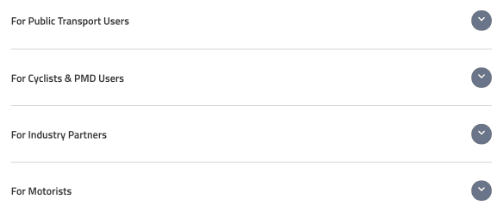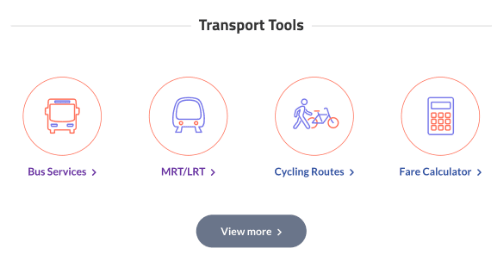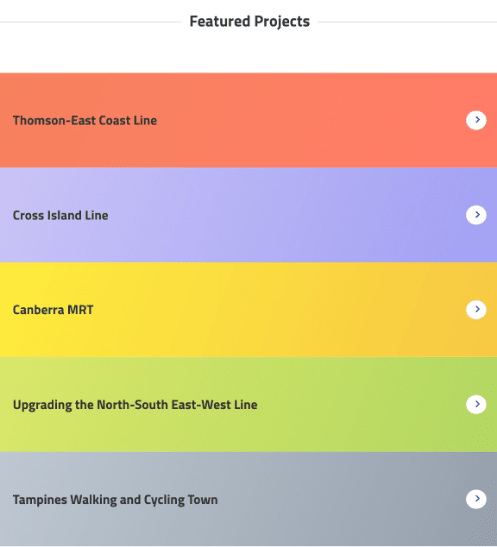The EVCA provides a comprehensive regulatory regime to govern the safety of EV chargers. This is achieved through upstream design (i.e. type approval of EV chargers), as well as downstream use and maintenance, through the EV charger registration regime.
Regulating the Safety of EV Chargers
Charging Standards
Technical Reference 25
A nationwide electric vehicle (EV) charging standard, Technical Reference 25 (TR 25), was established in 2010 to provide technical safety requirements for the EV charging systems (EVCS) in Singapore.
The latest version of the technical reference is TR 25:2022, which supersedes the TR 25:2016. Please refer to this summary for the key changes in the revised TR 25.
You can purchase a copy of the revised TR 25:2022 on the Singapore Standards website.
Please refer to this List of EV chargers issued with LNO (PDF, 200kB)
Accreditation to Test for EV Charging Systems (EVCS) under TR 25:2022
Accredited TICs with capabilities to test for the relevant parts of TR25:2022
| Accredited TIC | TR 25-1 2022 | TR 25-2 2022 | TR 25-3 2022 | TR 25-4 2022 |
| Intertek | ✓ | ✓ | ✓ | ✓ |
| TUV SUD | ✓ | ✓ | ✓ | ✓ |
| SGS | ✓ | ✓ | ✓ | ✓ |
| DEKRA | ✓ | ✓ | ✓ | ✓ |
| UL Solutions | ✓ | TBA | TBA | TBA |
| TUV Rheinland | ✓ | ✓ | ✓ | ✓ |
| EPGC | ✓ | TBA | TBA | TBA |
✓ = Accredited; TBA = To be advised.
Please note that LTA does not endorse or purport to endorse any of these TICs
Supply of EV Chargers
Under the EVCA, all EV charger models must be type-approved by LTA before they can be supplied. EV chargers must comply with the safety and performance standards under the Technical Reference 25 (TR25) – the national EV charging standard that sets out technical safety requirements for EV chargers – before they can be type-approved in Singapore.
Applications for Type Approval of EV Chargers
Following the commencement of the EV Charging Act, LTA will no longer be processing applications for Letters of No Objection (LNOs) with immediate effect.
Instead, EV chargers will need to be submitted to LTA for type approval under the EVCA. Type approval applications using test reports based on either the TR 25:2016 or TR25:2016 + A1:2020 will continue to be accepted until 7 June 2024. After 7 June 2024, only test reports based on the latest TR 25:2022 will be accepted. Applications for type approval can be made via the OneMotoring website.
For more information, please refer to the Guidelines for the Supply of EV Chargers (PDF, 594kB).
Installation & Certification of EV Chargers
Under the EVCA, EV chargers must be installed (for fixed EV chargers) and certified as fit for charging EVs according to requirements specified before they can be registered with LTA. In addition, EV chargers can only be installed and/or used in certain locations depending on their class of approval and EV connector type.
Requirements for Installing and Certifying an EV Charger
EV chargers must be installed (for fixed EV chargers) and certified as fit for charging EVs according to requirements under the EVCA, which require EV chargers to be type approved. The Certificate of Fitness issued after the installation and certification of an EV charger will need to be provided during the subsequent registration of the EV charger with LTA. The Certificates of Fitness can be found in the LTA C&F List below.
The installation of a fixed EV charger must be carried out by a Licensed Electrical Worker (LEW). Certification of EV chargers must be carried out by a charger equipment specialist.
A list of LEWs can be found via EMA's website. A list of equipment specialists will also be published at a later date.
Please refer to Section 2.3 of the Guidelines for the Supply of EV Chargers (PDF, 594kB) for details on the requirements for the installation and certification of EV chargers.
Locations for the Installation or Use of EV Chargers
Classes of Approval: Restricted and Non-Restricted Access Use
An EV charger will be approved for a specific class, which will determine where the EV charger can be installed and/or used subsequently.
Under the EVCA, EV chargers approved for restricted access use are strictly meant for use in restricted access locations. These locations refer to the parking spaces or locations for parking in landed dwelling houses that are not comprised within a strata title plan registered under the Land Titles (Strata) Act 1967, and will include bungalows, detached houses, semi-detached houses, and terrace houses.
EV chargers approved for non-restricted access use can be used in any place including restricted access locations.
It is an offence to use a restricted access EV charger in a non-restricted access location.
EV Connector Types for Publicly Accessible Chargers
For publicly accessible locations, only fixed chargers that come with Type 2 AC and/or Combo-2 DC (or CCS2) connectors can be installed. CHAdeMO connectors may be provided as an alternative charging option, in addition to Type 2 and/or CCS2 connectors. This will apply to locations where chargers can be used by any member of the of the public, and will include HDB carparks, malls and petrol kiosks.
For non-publicly accessible locations, in addition to what is allowable for publicly accessible locations above, Type 1, CCS 1, or proprietary connectors that are covered under the TR25 may also be provided. Chargers with only CHAdeMO connectors (i.e., does not come with Type 2 or CCS 2 connector) may be provided as well. This will apply to locations where chargers can only be used by a selected group of users, such as condominiums that do not allow public access.
Chargers Installed in Residential Premises
For residential premises1, EV chargers can only be installed and/or used at locations where a vehicle may ordinarily park, for example, in garages and carparks.
Under the EVCA, it will be an offence to use an EV charger improperly or allow an EV charger to be used improperly. This will include using an EV charger in ways that do not comply with the requirements above.
1A residential premise refers to any part of any land that is zoned for residential purposes by the URA.
















